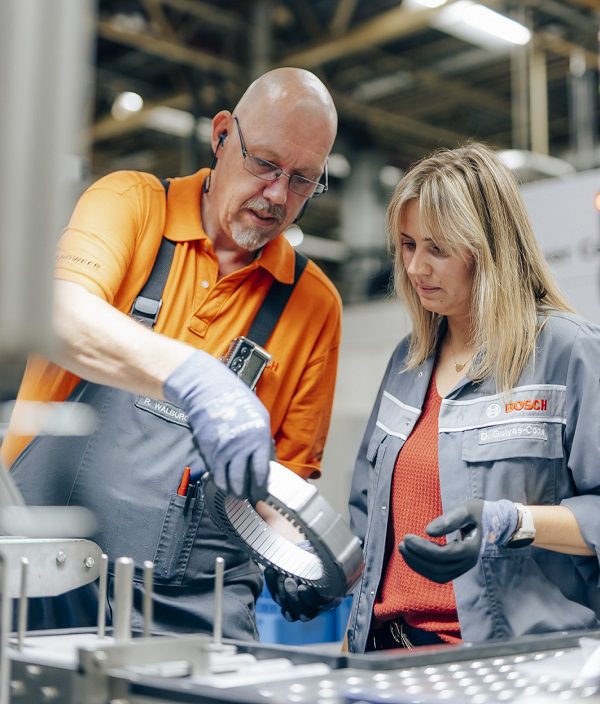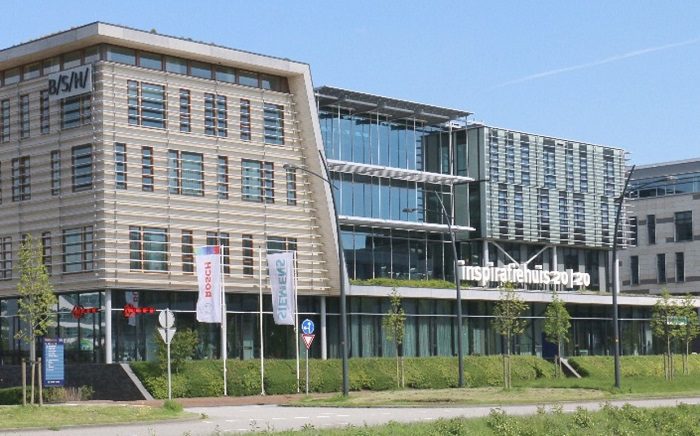ENGIE x Bosch
The entire society urgently needs to intervene to reduce our dependence on fossil fuels
- Article
- 07/08/2023

Therefore, despite the challenging economic climate, the Bosch Group is making efforts to develop and use climate-neutral technologies.
Since 2020, Bosch has been the world’s first industrial multinational to achieve carbon neutrality in all their scope 1 and 2 emissions. To accomplish this, the company invests in various environmental projects that support social and ecological development. Another important way to become more sustainable is through the procurement of green energy.
Flexibility in times of crisis
Bosch has been a customer of ENGIE for energy procurement for some time. In 2020, together with their energy advisor, Energie Makelaar, Bosch presented their sustainability challenge to ENGIE for their Dutch organization (Bosch in The Netherlands). “Bosch has a well-thought-out sustainability strategy, of which energy procurement is a part. This led to very specific requirements that few market parties could or wanted to meet,” explains Eddie de Jong, Senior Consultant at Energie Makelaars. “The flexibility and conditions offered by ENGIE were the best fit for these tenders.”
However, making our energy procurement sustainable is easier said than done, especially when providing sustainable energy to different locations. Furthermore, Bosch desired to become more sustainable by using locally generated energy. This is a step further on the sustainability ladder and more complex than simply compensating for CO2 emissions through the purchase of Guarantees of Origin (GOs).
“I am proud of what we have achieved together, especially considering the current climate”
By purchasing electricity from verifiable local sources, companies like Bosch are not only carbon-neutral on paper but also actively contribute to expanding the Dutch sustainable generation capacity. Significant volumes are being consumed, which encourages further expansion of sustainable assets to serve the rest of the market. Providing locally generated sustainable energy to decentralized locations required intensive collaboration involving multiple stakeholders.
In addition to collaboration between the account team and the Dutch locations, Bosch’s legal teams in Germany, Energie Makelaar, and ENGIE’s product development also played a crucial role. The result of this process, along with extensive paperwork, was a robust framework for Bosch Netherlands’ sustainable energy procurement. “I am proud of what we have achieved together, especially considering the current climate,” says Henk Snijders, Category Manager and Facility Management at Bosch.
“This contract was finalized in the extraordinary market year of 2022, and when you see what we have accomplished through in-depth discussions and negotiations, you can only be proud of the substantive outcome.”
The market uncertainties of 2022 weighed on Bosch’s mind during the contract negotiations as the procurement for the delivery year 2023 was still pending. “The energy market was in turmoil,” says Snijders. “We were pleased to have reached this agreement despite those market conditions.”

Moving towards further sustainability
With ENGIE’s product ‘Aanwijsbaar Groen’ (Demonstrably Green), electricity is now being purchased from local wind and solar parks. According to ENGIE’s calculations, this accounts for approximately 95% of Bosch’s total energy consumption in the Netherlands (reference year 2022). For the remaining volume, GOs are still being purchased. “With this agreement, ENGIE will provide us with sustainable energy for the next 10 years,” says Erwin Diepenbroek, Category Expert Facility Management at Bosch.
Greenifying the energy procurement has been achieved, in part, thanks to the use of self-developed solutions by ENGIE to assess an organization’s potential for sustainability. It begins with monitoring to gain insight into electricity consumption, followed by the formulation of procurement strategies. Based on these insights, it was agreed that ENGIE would assume program responsibility for Bosch to smooth out fluctuations in their consumption profile.

For Bosch, entrusting this to ENGIE is not a problem. “ENGIE is a highly professional party with a lot of expertise. We have built a strong relationship of trust,” says Diepenbroek. In addition to electricity, Bosch also procures natural gas from ENGIE, although this is decreasing due to the implementation of Bosch’s own technologies such as heat pumps for building heating. ENGIE is ready to support them in further sustainability efforts and is pleased to have such a forward-thinking company as a client.
Despite the economic volatility of recent years, Bosch is not sitting idle but continues to invest in further sustainability. Diepenbroek concludes, “Towards 2030, we are focusing on self-generation and energy efficiency. We also aim to optimize simultaneous heating and cooling, as well as energy demand and surplus. There are still plenty of challenges to solve.”